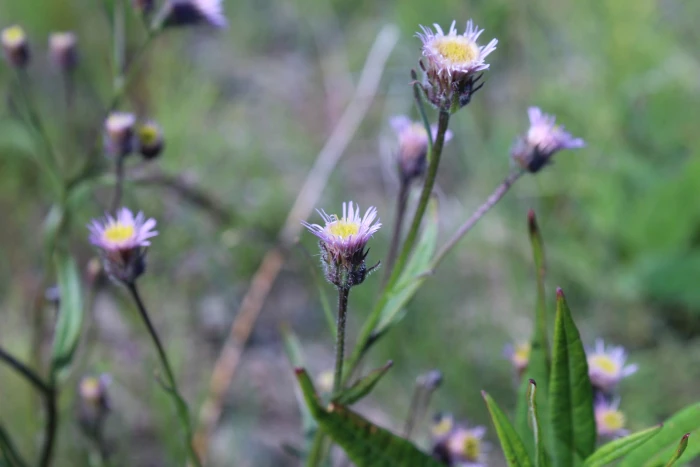Bitter Fleabane
(Erigeron acris)
Bitter Fleabane (Erigeron acris)
/
/

nina_nesterova
CC BY 4.0
Image By:
nina_nesterova
Recorded By:
Copyright:
CC BY 4.0
Copyright Notice:
Photo by: nina_nesterova | License Type: CC BY 4.0 | License URL: http://creativecommons.org/licenses/by/4.0/ | Rights Holder: nina_nesterova | Publisher: iNaturalist | Date Created: 2021-07-22T07:13:30-07:00 |

























Estimated Native Range
Climate Requirements for Duisburg, Germany
| This Plant | Your Site | Plant Suitability for Your Location | ||
|---|---|---|---|---|
| • Precipitation | 2" - 161" | 32" | Your precipitation may be too high for this plant. | Too high |
| • High Temp. | 33°F - 104°F | 75°F | Your summer temperatures are normal for this plant. | Excellent |
| • Low Temp. | -54°F - 48°F | 33°F | Your winter temperatures are normal for this plant | Excellent |
This plant may not grow well at your location - your precipitation is too high.
Summary
Erigeron acris, commonly known as bitter fleabane or blue fleabane, is a biennial or perennial herb that is native to a variety of habitats including meadows, open woodlands, grasslands, and disturbed areas across Canada, the colder parts of the United States, northern, central, and southeastern Asia, and most of Europe. It can grow up to 40 inches tall and is characterized by its production of a taproot and a woody rhizome. The plant displays numerous small flower heads with pink, lilac, or occasionally white ray florets surrounding yellow disc florets, typically blooming from late spring to early fall. The flowers are modest in size but can be quite numerous, creating a soft, dappled effect in the landscape.
Bitter fleabane is valued for its ability to adapt to various soil conditions and its low maintenance requirements, making it suitable for naturalistic plantings and wildflower gardens. It is often used in border plantings, as ground cover, and in pollinator gardens due to its attractiveness to bees and butterflies. This plant prefers full sun to part shade and requires well-drained soil. While generally not requiring much water once established, it does appreciate occasional watering during prolonged dry spells. There are no widely known popular garden cultivars of this species. Potential problems include susceptibility to powdery mildew and rust, especially in humid conditions. Erigeron acris is not typically invasive but can self-seed prolifically if conditions are favorable.CC BY-SA 4.0
Bitter fleabane is valued for its ability to adapt to various soil conditions and its low maintenance requirements, making it suitable for naturalistic plantings and wildflower gardens. It is often used in border plantings, as ground cover, and in pollinator gardens due to its attractiveness to bees and butterflies. This plant prefers full sun to part shade and requires well-drained soil. While generally not requiring much water once established, it does appreciate occasional watering during prolonged dry spells. There are no widely known popular garden cultivars of this species. Potential problems include susceptibility to powdery mildew and rust, especially in humid conditions. Erigeron acris is not typically invasive but can self-seed prolifically if conditions are favorable.CC BY-SA 4.0
Plant Description
- Plant Type: Herb
- Height: 1.5-3 feet
- Width: 1-1.5 feet
- Growth Rate: Moderate
- Flower Color: Pink, White, Yellow
- Flowering Season: Summer, Fall
- Leaf Retention: Semi-deciduous
Growth Requirements
- Sun: Full Sun
- Water: Medium
- Drainage: Fast
Common Uses
Border Plant, Butterfly Garden, Low Maintenance
Natural Habitat
Native to meadows, open woodlands, grasslands, and disturbed areas
Other Names
Common Names: Bitter Fleabane, Blue Fleabane
Scientific Names: Erigeron acris, Erigeron acris var. fuscomarginatus, Trimorpha acris var. acris
GBIF Accepted Name: Erigeron acris